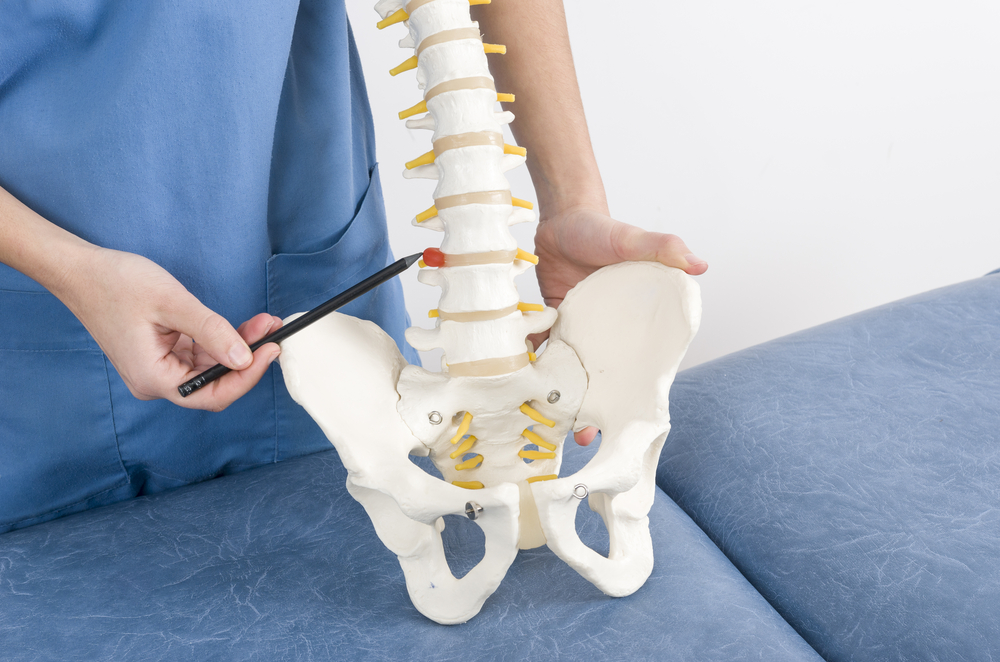
A slipped disc is a common condition that can range from a painful inconvenience to a serious health issue that requires immediate medical attention.
By definition, a slipped disc is when the soft center of a spinal disc pushes through the hard exterior, often touching nearby nerves (which is what causes significant pain in certain cases). This often occurs due to age, as people tend to become less flexible as they grow older. It can also be the result of excessive weight, poor posture (sometimes due to long-distance driving or sitting at a desk), smoking, or simple genetics.
Spotting the signs of a slipped or herniated disc can help you to prevent the problem from deteriorating and make it easier to recover from the issue faster.
While this isn’t always easy (as many cases are symptomless), there are certain common clues to look out for.
This is how to spot the signs of a slipped disc.
You could feel pain in multiple places
One of the most common signs of a slipped disc is a pain in your lower back. This is somewhat obvious and the tell-tale sign of a spinal issue. However, you may also feel pain in your arms or legs, as well as your buttocks, thighs, calves, and neck.
Furthermore, you may find that flexibility in your spine is limited and that simple actions like bending down to pick something up off the floor or straightening your back up are too painful to manage.
If you suffer from severe symptoms that limit your daily activities, it is worth learning more about the potential treatments available to you – such as stem cell therapy, which you can learn more about at bioxcellerator.
You feel numbness or tingling in certain limbs
Another common symptom of a slipped disc is a numbness or tingling sensation in different parts of your body.
Common places include your shoulders, arms, back, legs, and feet. Pain in your lower body (mostly your hips, buttocks, and thighs) can become severe if your slipped disc is touching the sciatic nerve.
Of course, given that your disc could be pressing on nerves that stretch out to all areas of your body, you might experience these symptoms in other areas too.
In certain cases, slipped disc sufferers experience either a burning or aching sensation in the spine.
Your muscles feel weak
If you feel as though your muscles are growing weaker for no apparent reason, then you could be suffering from a slipped disc.
The best advice is to pay close attention to the relative strength of your muscles daily. If you feel as though you are struggling to walk a small distance (especially if you experience pain), lift heavy objects or complete the same level of exertion for a week or more, it is best to consult a medical professional who can diagnose the problem.
Of course, you are more likely to find out if this is the case if you are used to exercising regularly or find yourself in pain after otherwise minor exercise.





